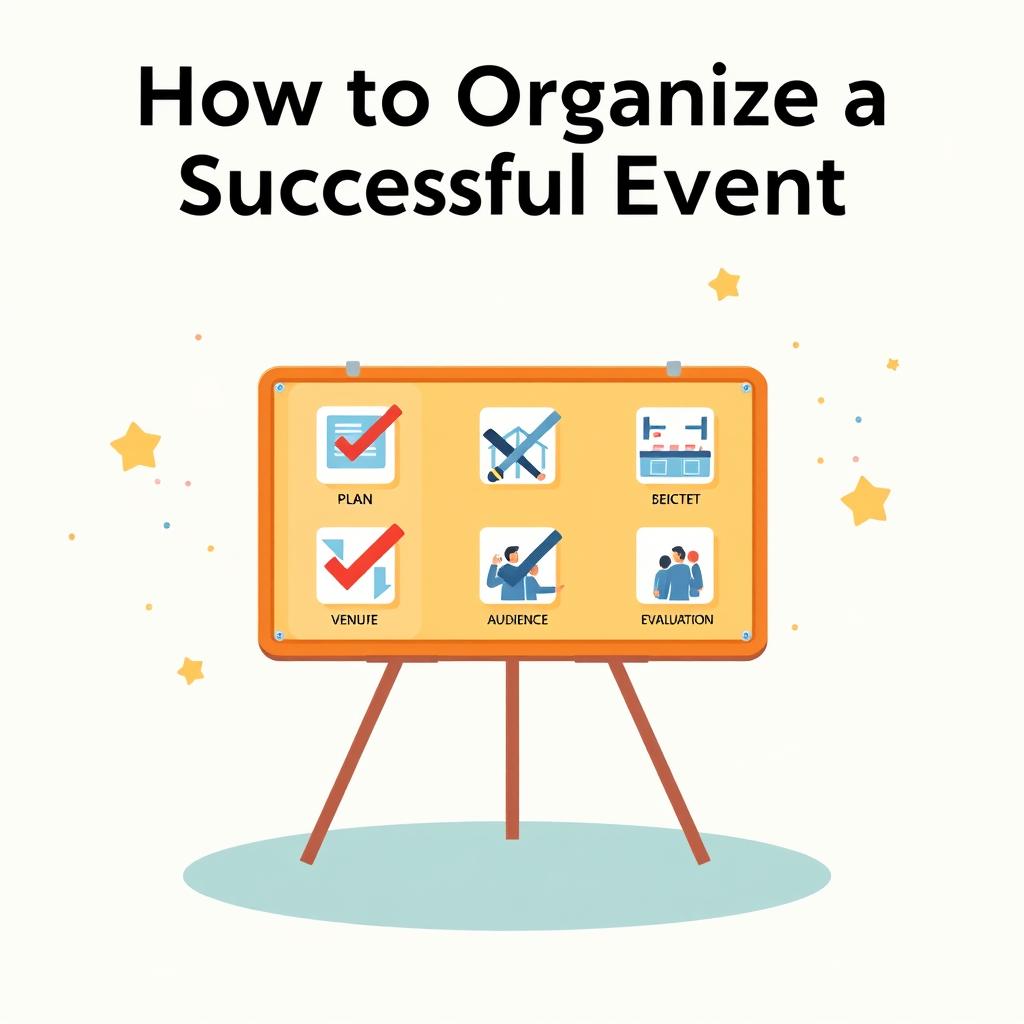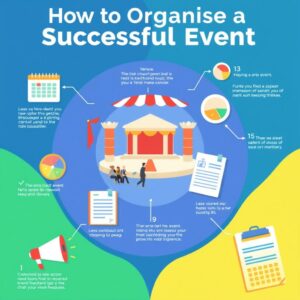The Ultimate Guide to Planning a Successful Event: From Goals to Follow-Up
Introduction
Are you planning an event but don’t know where to start? Whether it’s a corporate conference, a charity gala, or a community festival, organizing a successful event requires careful planning and execution. In this comprehensive guide, we’ll walk you through every step of the process, from defining your goals to following up after the event. By the end, you’ll have all the tools you need to create an unforgettable experience for your attendees.
Define Event Goals & Objectives
Before diving into the logistics, it’s essential to clearly define what you want to achieve with your event.
- Why Are Goals Important?
Setting specific, measurable objectives helps guide decision-making and ensures everyone involved is aligned. For example, are you aiming to increase brand awareness, raise funds, or educate attendees?
- How to Set SMART Goals
Use the SMART framework (Specific, Measurable, Achievable, Relevant, Time-bound) to craft actionable goals. This will keep your planning focused and results-driven.
Identify Target Audience
Understanding who you’re hosting the event for is crucial to its success.
- Who Are Your Attendees?
Determine demographics such as age, gender, profession, interests, and geographic location. Tailor your event offerings to meet their needs.
- Why It Matters
Knowing your audience allows you to personalize marketing efforts, select appropriate venues, and design activities that resonate with them.
For instance, if your target audience is tech professionals, consider incorporating workshops or networking sessions relevant to their industry.
Create a Detailed Budget
A well-planned budget ensures financial stability and minimizes unexpected expenses.
- Key Expenses to Include
Break down costs into categories like venue rental, catering, entertainment, marketing, staffing, and contingency funds.
- Tips for Staying on Track
- Prioritize spending based on importance.
- Use budgeting software to track expenses in real-time.
- Leave room for unforeseen costs—aim for 10-15% of your total budget as a buffer.
By sticking to your budget, you can avoid overspending and ensure profitability.
Choose the Right Venue & Date
The venue and date set the foundation for your entire event.
- Factors to Consider When Selecting a Venue
- Capacity: Does it accommodate your expected number of guests?
- Accessibility: Is it easy to reach by public transport or car?
- Amenities: Does it offer necessary facilities like Wi-Fi, AV equipment, and parking?
- Selecting the Perfect Date
Avoid clashing with holidays, major events, or competing gatherings. Conduct surveys or polls to find a date convenient for most attendees.
Develop a Marketing Plan
Promoting your event effectively is key to attracting attendees.
- Leverage Multiple Channels
Use social media, email newsletters, paid ads, and partnerships with influencers to reach a wider audience.
- Create Compelling Content
Highlight unique selling points, early bird discounts, and testimonials from past participants to generate excitement.
- Track Performance
Monitor metrics like click-through rates, registration numbers, and engagement levels to refine your strategy.
Coordinate Logistics & Suppliers
Smooth operations depend on meticulous coordination of logistics and reliable suppliers.
- Logistics Checklist
- Arrange transportation, accommodations, and signage.
- Confirm timelines with vendors, including setup and teardown schedules.
- Supplier Selection Tips
Research reviews, request quotes, and negotiate terms before finalizing contracts. Ensure they align with your event vision and quality standards.
Engage Attendees with Activities
Interactive and engaging activities enhance attendee experience and leave a lasting impression.
- Popular Activity Ideas
- Panel discussions and Q&A sessions.
- Interactive booths or experiential installations.
- Team-building games or contests.
- Encourage Participation
Provide incentives like raffle prizes or exclusive content for active participants. Make sure activities align with your event theme and goals.
Post-Event Evaluation & Follow-Up
After the event concludes, take time to evaluate performance and connect with attendees.
- Evaluate Success Metrics
Analyze attendance rates, feedback surveys, revenue generated, and overall satisfaction scores. Identify areas for improvement for future events.
- Follow Up with Attendees
Send personalized thank-you emails, share highlights via social media, and offer post-event resources like presentations or recordings. Building relationships strengthens loyalty and encourages repeat attendance.
Planning a successful event doesn’t have to be overwhelming when you break it down into manageable steps. By defining clear goals, understanding your audience, creating a detailed budget, and executing each phase thoughtfully, you’re setting yourself up for success. Ready to get started? Download our free event planning checklist today and bring your vision to life!












